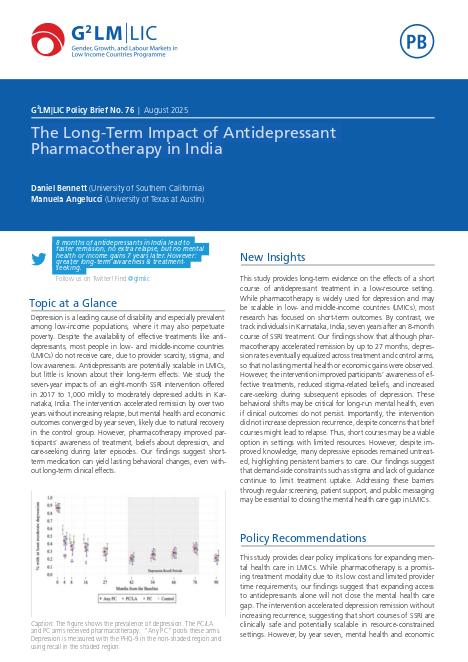Depression is a leading cause of disability and especially prevalent among low-income populations, where it may also perpetuate poverty. Despite the availability of effective treatments like anti-depressants, most people in low- and middle-income countries (LMICs) do not receive care, due to provider scarcity, stigma, and low awareness. Antidepressants are potentially scalable in LMICs, but little is known about their long-term effects. We study the seven-year impacts of an eight-month SSRI intervention offered in 2017 to 1,000 mildly to moderately depressed adults in Karnataka, India. The intervention accelerated remission by over two years without increasing relapse, but mental health and economic outcomes converged by year seven, likely due to natural recovery in the control group. However, pharmacotherapy improved participants’ awareness of treatment, beliefs about depression, and care-seeking during later episodes. Our findings suggest short-term medication can yield lasting behavioral changes, even without long-term clinical effects.
